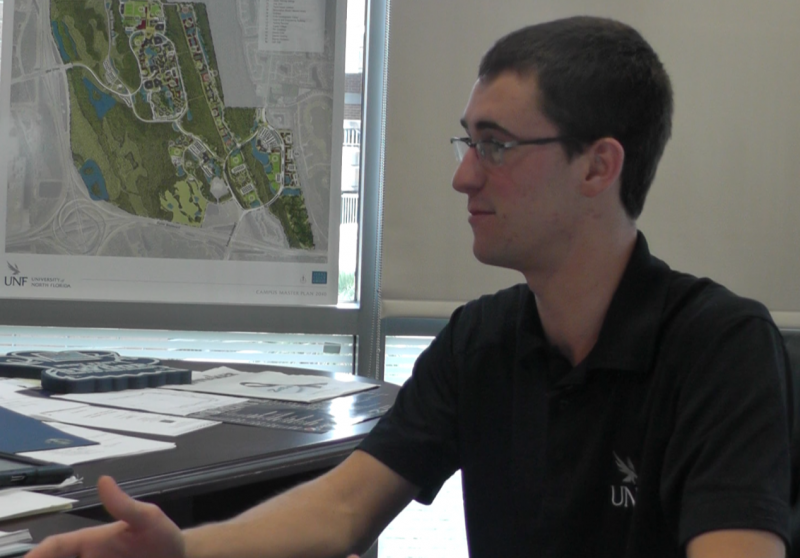
Photo from video courtesy of Natalie Logan
Students may see fewer events from organizations on campus because of Student Government cuts to the 2013-14 budget.
Of the 32 organizations that requested funds, only one received more than the requested amount: the Legislative branch of Student Government. Ten organizations were given the funding they requested and 21 were given less than requested.
Since last year, the annual budget decreased by $92,000, leading to these cuts. This drop in the budget is attributed to low summer enrollment.
However, SG was aware of this ongoing problem when they chose not to request a higher student fee for SG but instead increased the athletic fee by $1.50 per credit hour in last fall’s Student Fee Assessment Committee.
In the Nov. 15 SFAC meeting minutes, treasurer Billy Namen noted that the Athletics fee is the second highest in the state.
Student Body President Carlo Fassi said the fee was validated because the Athletics Department pays for scholarships that must increase every year along with tuition.
However, according to the SFAC minutes, this year the Athletics Department spent funds they were given in ways that were not approved — giving them to salaries and raises instead. Fassi said the money was supposed to pay for an NCAA bill that did not pass.
“Now, any changes must officially be brought to SFAC before the money is spent,” Fassi said.
While the SFAC is giving more money to the Athletics Department, organizations of Student Government could suffer if this version of the budget goes through.
The Intercultural Center for PEACE requested $16,060, but will only receive $4,500. This is about $8,000 less than last year.
Kamele “Oupa” Seane, Director of the ICP, said they will no longer be able to hold events like the Native American Celebration they held earlier this year.
Seane said the people who really lose are the students, because they should have opportunities to learn outside of the classroom.
David Crabtree, the director of the Student Union administration staff, is not upset by the approximate $10,000 loss from last year’s budget or the $35,100 deduction from what they requested. He said he understands SG has less money to give away and said his department will use the federal work/study programs to pay for student wages.
The one organization that received more funds than it asked for was SG’s Legislative branch. Fassi says this is because of the new University Affairs Committee Chair position, which is supposed to help increase senator accountability, and increased funds to pay for election publicity.
Fassi said the reason SG did not request more for the Activity & Service fee, which pays for all the organizations SG funds, was because of unused funds in previous years.
“We found it healthy for us to take a look at our operating budget and see where we could make cuts instead of having students pay ‘x’ and only receiving ‘y’ in return.”
It is unclear why suffering organizations like the Intercultural Center for PEACE were chosen for cuts or where they are supposed to find funding now.
In regards to which organizations got funding cuts, Fassi only said the committee and Student Body Treasurer could look at how much the organizations had spent to date and in previous years and make cuts according to what they thought was appropriate.
The cuts may never end up going through in their current form. A public forum to discuss the budget will be held on Feb. 8 from 9 a.m. until 11 a.m. before the budget goes to vote at the Senate meeting on Feb. 11.
Email Natalie Logan at reporter6@unfspinnaker.com.











